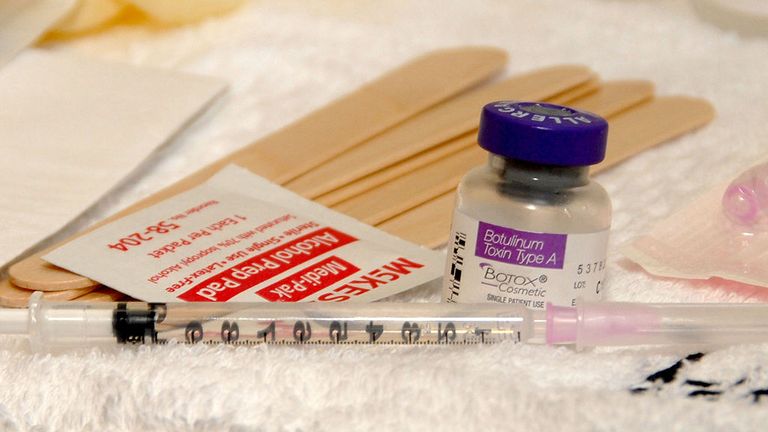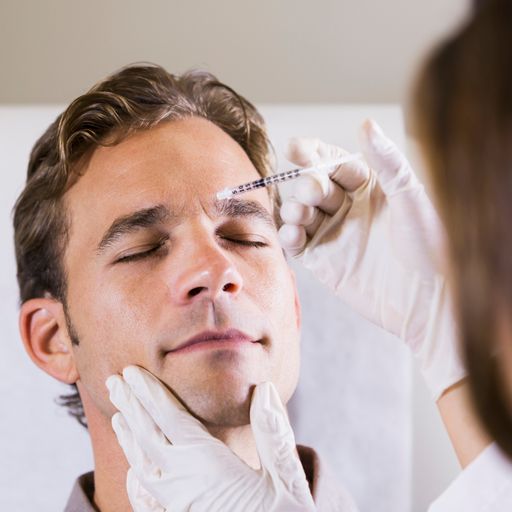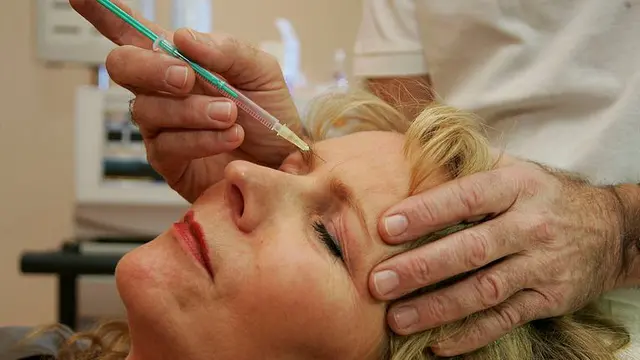Botox injections could be used to treat depression, according to an ongoing clinical trial in the US.
The medication, which is derived from the botulinum neurotoxin, is commonly used to ease wrinkles, migraines, muscle spasms and other conditions.
Now researchers at the University of California, San Diego, say those who receive botox injections are depressed far less often than others.

Image:Scientists say more research is needed on the use of botox for treating depression
They analysed a database which records adverse effects caused by medications to see what happened to nearly 40,000 people after they received botox treatment for a variety of reasons.
They discovered that people who were injected with the neurotoxin - at six different sites, not just the forehead, for a variety of reasons - reported depression significantly less often than patients who received different treatments for the same conditions.
"For years, clinicians have observed that botox injected for cosmetic reasons seems to ease depression for their patients," said Professor Ruben Abagyan.
"It's been thought that easing severe frown lines in forehead region disrupts a feedback loop that reinforces negative emotions.
"But we've found here that the mechanism may be more complex, because it doesn't really matter where the botox is injected."
The research, published in the journal Scientific Reports, found that depression was reported up to 88% less often by patients treated with botox for six of eight particular conditions.
Their report covers botox treatments injections in the forehead, but also in the neck, limbs and bladder for conditions affecting those regions.

Surgeons issue warning as Superdrug brings Botox to the high street for £99
But the study has limitations, the researchers acknowledge, noting especially that the data was not specifically collected to explore the association between botox use and depression.
It is also represents only a subset of botox users who voluntarily reported negative side-effects, and those who didn't report any weren't included.
The team also excluded reports in which a person was also taking antidepressants, the use of other prescription and over-the-counter medications could have been under-reported in some cases.
Potentially, because botox is commonly used to treat conditions which may contribute towards depression, its success as an antidepressant could be down to it successfully treating the underlying cause.
But scientists say more research is needed, from clinical trials to identify the best locations to administer the medication for the treatment of depression, through to identifying the mechanism by which botox acts as an antidepressant.
 简体中文
简体中文

